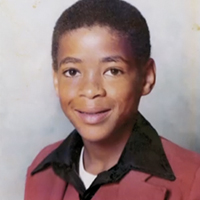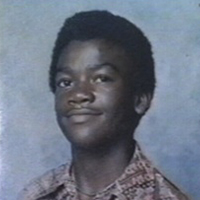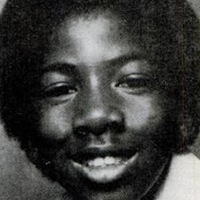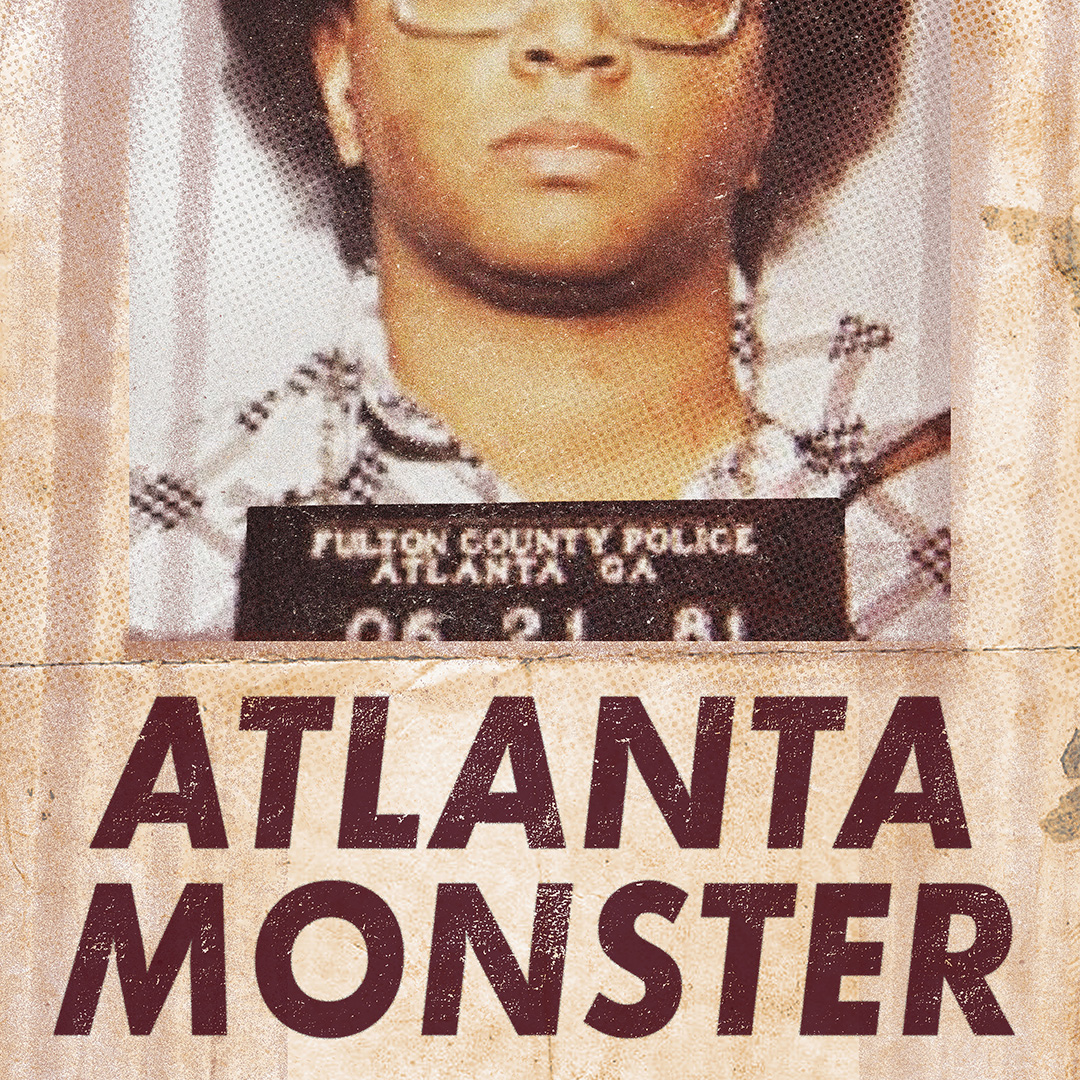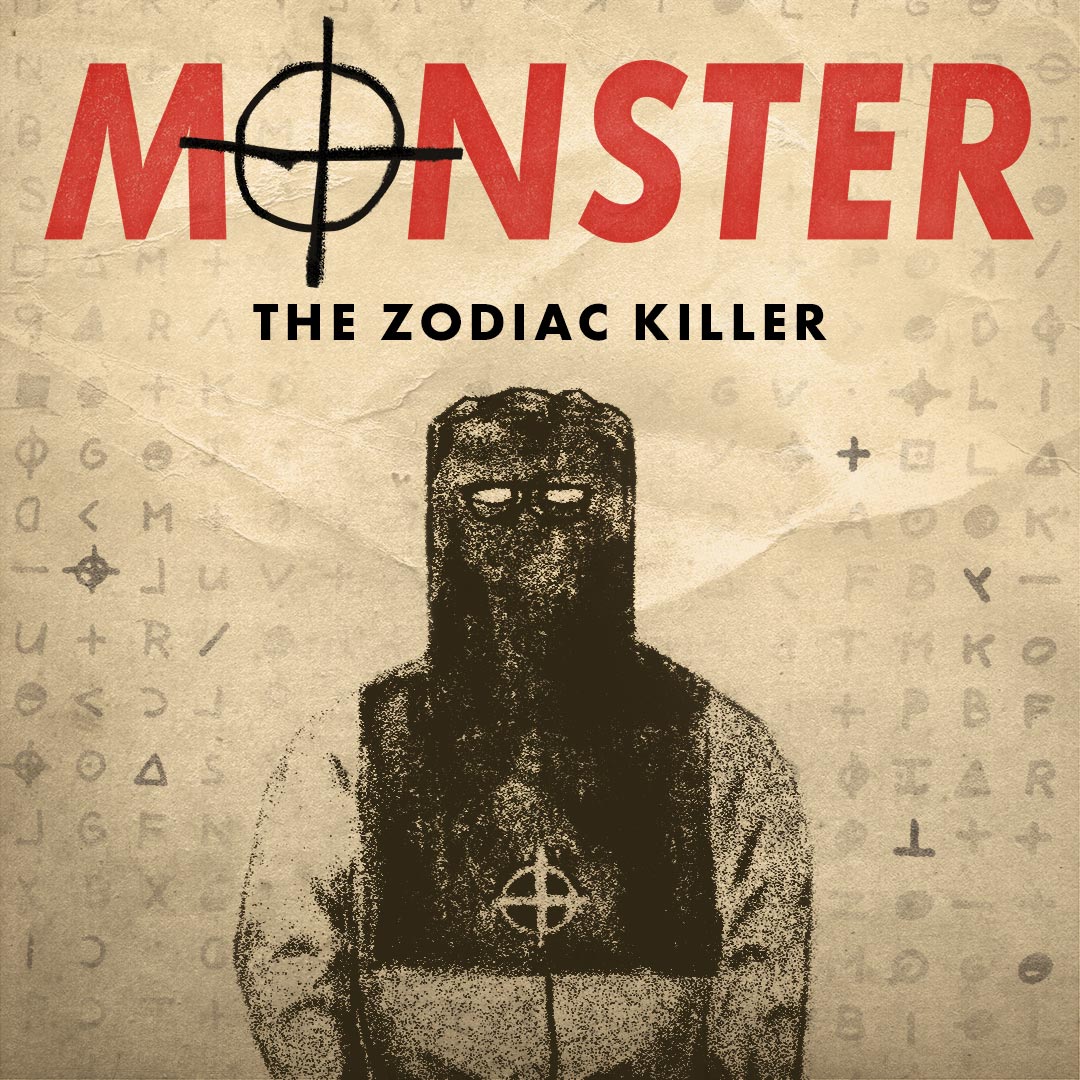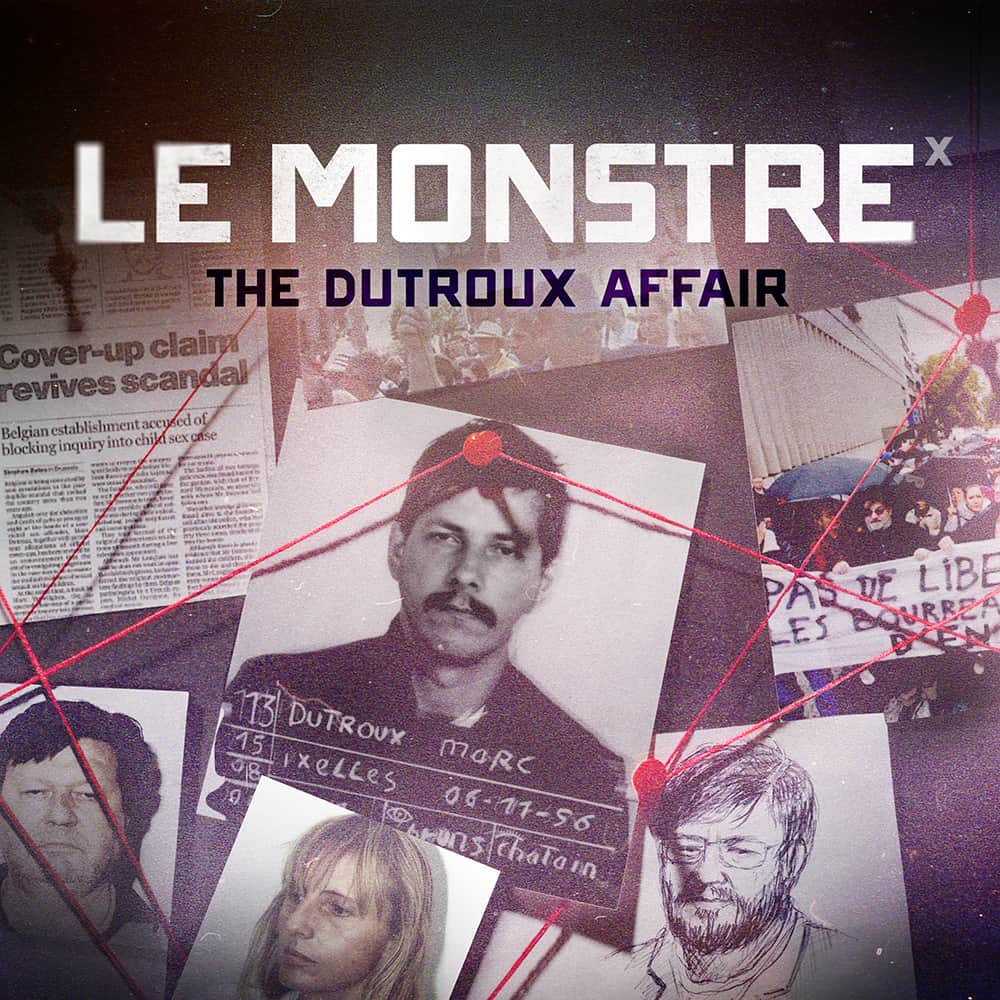Episode 1
Boogeyman
It’s 1979 in Atlanta – and children are going missing.
I’ve recently been told that if I release this podcast, “bad things” are going to happen to me in the sense of a threat on my life, or my safety, or that of my family.
– Neil Strauss, Journalist/Host
I’ve recently been told that if I release this podcast, “bad things” are going to happen to me in the sense of a threat on my life, or my safety, or that of my family.
– Neil Strauss, Journalist/Host
– Eric Cameron
Victims
Patrick Baltazar
Age 12
Last Seen 02/06/1981
Edward Smith
Age 14
Last Seen 07/21/1979
Alfred Evans
Age 14
Last Seen 07/25/1979
Transcript
Eric Cameron: At that time, it was just so … just to think back everybody was scared. It was always, be careful. Everywhere I go, go in groups. You know what I’m saying, it was like everybody was scared. Definitely the people from where we grew up. Around from where we’re from, everybody over there was scared because that’s where they was getting the kids from. It was crazy man. That time was like the boogeyman.
Eric Cameron: Literally somebody going around taking kids. They were finding them in Chattahoochee, they were finding them behind buildings. That was just our life.
Eric Cameron: When you’re living through something like that, it’s kind of like different. It was just something we had to deal with. Watch for the boogeyman.
Jasper Cameron: My name is Jasper Cameron. We are in the ATL, Atlanta, Georgia and I’m from Atlanta, Georgia. Born and bred.
Eric Cameron: I’m Eric Cameron and I’m from Atlanta, Georgia also. West side to be exact.
Jasper Cameron: Yep. He the big brother.
Eric Cameron: That’s the little brother.
Jasper Cameron: The area we from is where all the kids, most of the kids were getting missing from. The area we from, the West side of Atlanta … it was almost like you got to be real, real careful like can’t stay out, you always be with somebody. I was real, real little so at most times I was with him anyway, my big brother.
Eric Cameron: Man, that was real trying time because we couldn’t hang out. I mean it’s a lot different now, man. Times are different. Back then, everything was about going outside. Now, everything is about being inside. Playing on computers and games and whatever, but it was just a different time. They snatching kids, somebody getting kids so you stand a better chance of not getting snatched if there’s more than one, if you’re with somebody. It was just unthinkable who could do this?
continue reading
Monica Kaufman: It’s 10:00 PM, do you know where your children are?
News reporter 1: It’s 10:00 PM, do you know where your children are?
Eric Cameron: I still remember that. Literally remember that. Talking about keeping your kids safe and what other things you could do to keep them safe. I still remember that. What was that, channel two? What channel that was?
Jasper Cameron: Monica Kaufman?
Eric Cameron: Monica Kaufman I think, it was on channel two they would say that. “Where are your kids?”
Monica Kaufman: It’s 10 o’clock, do you know where your children are? That statement became a nightly statement. I was Monica Coffman. I’m now Monica Kaufman-Pearson. I anchored the five, the six, the eleven, and the four o’clock news at channel two, WSBTV. It’s the city’s oldest television station. People needed to know that they needed to keep an eye on their boys, in particular, because boys were being literally picked up off the streets.
Monica Kaufman: There was this fear that unless you reminded people to ask where’s your child, do you know where your child is at this time, at 10 o’clock. Your child should be in your house, that people needed to be reminded there was a monster on the prowl in metro Atlanta. It was scary, it was very scary.
News reporter 2: Ten, nine, eight, seven, six, five, four, three, two, one and a happy 1979!
Payne Lindsey: The year is 1979. Jimmy Carter is our president. The Vietnam War ended just four years ago and it’s been barely over a decade since the Civil Rights Movement. My name is Payne Lindsey. I’m a documentary film marker. I was born in 1987. I’m from a small town called Kennesaw Northwest of Atlanta.
Payne Lindsey: In 2016, I made a podcast called Up and Vanished where I spent nearly two years investigating an unsolved disappearance of a high school teacher and beauty queen from South Georgia named Tara Grinstead. Tara vanished from her home in 2005 and the case remained ice cold for more than a decade. Six months after I started making the podcast, something crazy happened. The police arrested two suspects in connection with Tara’s murder. For the first time in nearly 12 years, this small town community had some answers.
Payne Lindsey: Since then, I’ve been looking into other cold cases. What began as just an idea became something more like an obsession. A few months ago, I was in my office and my business partner Donald mentioned a case I’d never heard of, the case of Atlanta’s missing children. I started doing some research on my own time, reading old articles and watching news clips. What I found was captivating.
Payne Lindsey: A twisted tale that’s haunted Atlanta for over three decades. As far as a documentary goes, I didn’t really have a plan, but I just started talking to people. I made sure I recorded everything. Okay. Let’s go back to 1979.
Calinda Lee: You think about the late ‘70s, it’s post 1960 soul and stacks and all that stuff. Now you’re sliding in the disco era. This is an era where cable is a new idea. Ted Turner hasn’t even really done his thing with CNN, that’s what we’re talking about. There was no 24 hour news network or news cycle at the beginning of this.
Payne Lindsey: This is nearly 40 years ago now. Needless to say, in many ways things are very different. The first thing I did was try to soak in as much as possible about this time period. This is-
Calinda Lee: Calinda Lee, I’m the Vice President for Historical Interpretation and Community Partnerships at the Atlanta History Center.
Calinda Lee: Certainly, what you’re looking at by the late ‘70s, early ‘80s is that first generation of African-Americans who had actually benefited from school desegregation for example at both a secondary and collegiate level by then. People who were in segregated maybe primary schools and still had those memories, but were professionals by the early ‘80s. African-Americans are prospering to some degree. Still, definitely hard hit by the Recession, but compared to the ways in which they had been disadvantaged before, prospering to some degree. Largely as a byproduct of affirmative action.
Payne Lindsey: Calinda described a time of fear and helplessness. All around her, kids were gradually going missing one by one. To kids her age, there was this idea there was a real life boogeyman out there. In a sense that no one was really trying to protect them.
Calinda Lee: I was a child in Atlanta during that time. I was a nine year old living in Atlanta in the fourth ward, which was one of the areas from which children were taken. I remember as a child the whispers and chatter among children. If you can imagine, this real life boogeyman is actually out there. This is really happening. There was a child who went to summer camp with me who was one of the children who was abducted. There wasn’t a sense that anything very serious was happening to protect us. There wasn’t a sense that anything about our daily lives was really changing much except that we were very afraid and our parents were very angry.
Calinda Lee: Every single one of them was not only black, they were also poor. The neighborhoods from which they were taken were the most vulnerable, most impoverished, within the city. Many of them came from public housing projects. All of that definitely conspired to make folks feel like this is something that is happening to the least of us and nobody cares.
Calinda Lee: Atlanta is ashamed of this I think, continues to be ashamed of this. It is not something that people really candidly talk about in the open very much. I think that it’s interesting that there’s a way in which, I think Atlanta remains ashamed of the racial bifurcation that this really shows up. When you talk to people about their memories of this time, there’s a really distinct gap. I do a lot of oral history, there’s a really distinct gap between white Atlantans and black Atlantans. I think that it’s about a profound sense of separate realities and separate societies.
Calinda Lee: It’s startling to me, as a person who again, as a child lived here to talk to people who are my contemporaries who were living in other neighborhoods, living in majority neighborhoods who didn’t have a sense of that urgency at all, who didn’t have a sense of that vulnerability at all, who didn’t even know that it was happening at all. I think it’s impossible to disentangle the race and class issues.
Russell Baltazar: I think if the world was designed with all blacks, we might be prejudice to the one that’s too short, the one that might be too tall, the one that’s bald. I think the same difference if it was all whites. It’d be the same thing. I think it’s just a human illness that we have and we, as a people, never learned to solve it. It’s crazy. Even in Vietnam, it was the same thing.
Payne Lindsey: This is Russell Baltazar. He’s 69 years old, currently living in Baton Rouge, Louisiana. As a young adult in the late ‘70s, Russel remembers this time period all too well.
Russell Baltazar: When I left for the Marine Corps, I was 17 years old. They had to fly us out secretly in the middle of the morning and fly us back in the middle of the night. That’s how we used to leave here, at night, so most of the protesters wouldn’t see us leaving. We were so close together, as a team, and what we were for, we were bled red, we ate together, slept together, the whole nine years. It didn’t make a difference, but when we flew back to the State side and landed on the tarmac, we went back our separate ways again.
Russell Baltazar: I was active duty in the Marine Corps at the time, stationed at Camp Lejeune, North Carolina. My father was living in Atlanta. Patrick, Diana, and Jacqueline are my three youngest brothers and sisters. They got invited there during the summer to Atlanta. They decided to enroll in school there.
Payne Lindsey: Even all the way in North Carolina, Russell remembers seeing and hearing the news stories about Atlanta’s missing children. With his younger siblings having just moved to Atlanta, Russell felt concerned for their safety. One day, he called his father.
Russell Baltazar: I asked him, do you think that it’s wise that those kids should be there? Maybe they need to be back in Louisiana. He said, “Well, everything is gonna be okay. We gonna go get and put them in school and they’re gonna be safe.” I says, “Well, I don’t have a good feeling about it, but you go ahead and handle it.”
Payne Lindsey: A few months later, his father called him out of the blue one day.
Russell Baltazar: He called me and he asked me, “Have you seen Patrick?” “What do you mean have I seen Patrick? He’s in Atlanta and I’m in Camp Lejeune, North Carolina and he’s 11 years old.” I think he was just reaching for straws because now all of a sudden he’s worried. “Well, you know Patrick thinks a lot of you and it is a possibility maybe he got a ticket, caught the bus, and went up there to see you.” I says, “No, dad. I don’t think that would happen. That’s kinds of odd for you to say that Patrick, as young as he is, would try to find me in North Carolina, had never been there before to the base at all or was trying to locate me.”
Russell Baltazar: I just felt that wasn’t something for an 11 year old, the way we were raised, that Patrick would just. I said, “I got a bad feeling you’re not gonna find Patrick alive.” I made him angry when I said that. I had that feeling that you’re not gonna find him. A week later, the following Friday, that’s when we got a phone call that they found him.
Payne Lindsey: Who called you?
Russell Baltazar: My dad.
Payne Lindsey: What’d he say?
Russell Baltazar: He said that they found him, your brother, dead. He was stabbed several times. They claimed that he got beat with a round object and strangled. I told him, I says, “Well, I’m gonna talk to my Commander and see if I can come out there to be with you.” That’s what I did.
News reporter 2: St. Anthony’s church was crowded with Patrick Baltazar’s family, his friends, and classmates. The shock of his disappearance 10 days ago had barely sunk in when they learned Friday that his body had been found.
News reporter 2: Patrick’s fellow fifth graders sat quietly, attentively, wondering why their friend had been taken from them. It was to these youngsters that Father Patrick Bishop directed his remarks. He spoke of a good fear that teaches children to avoid danger and he spoke of a bad fear, terror, that can’t be understood. He made a plea.
Father John Adamski: There are things in this life that are dangerous. Things that we need to protect ourselves from. You can’t let it change your way of believing about people.
News reporter 2: After the mass, Father John Adamski read a poem written by Patrick’s classmates. It ended with these words.
Father John Adamski: There was not a word about how you died. It is no wonder that we all cried. Patrick, we miss you and wish you knew how much your schoolmates grieve for you.
Russell Baltazar: My mom’s and daddy’s from a little old town of Breaux Bridge in Cecilia, Louisiana. This one particular gave site has my grandmother and my aunts and brothers and majority of the family, my mother. In the past, all of us has always made a point whenever one of us pass, make sure we went back to that same graveyard. When I drove back to Atlanta to pick up his body, I stayed there until the wake was over, what they call is a memorial, basically. Once they closed the coffin, I talked to arrangement with a funeral director. They flew the body here, I drove here, and waited until his body showed up. I made arrangement with one of the funeral directors here in a little town of Breaux Bridge. We did the funeral services there and buried him there.
Russell Baltazar: I’m gonna tell you a little something about that.
Payne Lindsey: Okay.
Russell Baltazar: During that era now, we still talking about the segregation integration going on and everybody trying to get us to merge together as black and white. Well, there in that town, being in the South, there were two churches. These two churches, one of the churches is white, the other church is black. Same denomination of church, in between the two churches is a cemetery. Whites are buried to the front and blacks are buried to the black. The cemetery has always been set up like that.
Russell Baltazar: When the hearse showed up, it showed up in the front door of the white church. I’m standing at that particular church. To me, church is church and no problem. They met us outside of that church and told us that they couldn’t do it. They couldn’t do his services in that church. I went over and talked to the minister about it. “You will have his funeral in that church.” This guy that was driving the hearse got so angry ‘cause he was a white driver.
Russell Baltazar: I think the rule was that you do not take blacks in that church. He was trying to hold fast to that. Didn’t want to bring him over to the white’s church to get buried, to do his service. He was upset because I was demanding for it to happen that way. He mashed on the gas and was kicking rocks, spinning in the parking lot with Patrick’s body in the back of the hearse.
Russell Baltazar: I wasn’t try to make any problems for anybody. You told me no. Why not? Well, you couldn’t tell me why you couldn’t do his service here. I’m out here raising Hell for Patrick to get him to be buried. They did his service in the church as one of the first black kids that ever had a funeral in that church.
News Reporter 3: It has proved to be the police department’s most baffling problem. Eight children, kidnapped or killed in the last year. There have been massive searches. Civic groups have tried to help out. Parents of the children have gotten together to see what they could do. Former police officers have donated their time to the investigation, but still nothing.
Calinda Lee: I still remember parent’s organizing to stand at the bus stop with the kids and wait for them to safely be on the bus. The anxiety that produced. Remember, this is a time when we were free range children. We would come home when the street lights came on children. That was a very big deal.
Mother of child: I am so sorry that what happened to my child, what happened to these other ladies’ children happened, but what I want you to do is to hang in there and try your best to see to it that it doesn’t happen to yours.
Calinda Lee: The mothers of missing and murdered children sat in at city hall to demand that a full investigation be launched. Imagine the grief, not just of losing your children, but then having to demand that there be full attention to this.
Mother of child: We are paying people to maintain the safety of the streets of the city of Atlanta. If the safety of the city of Atlanta is not maintained, then the people that we are hiring to do that job need to be looked at carefully. If that job is not done, then we need to look towards why we are paying people not to do a job.
News Reporter 3: Part of this crowd agreed that some of the criticism of the police was accurate. Tell explained there was no attempt to show the city as insensitive, just to show how long it look Atlanta and the city administration to become outraged.
Calinda Lee: That fracture, I don’t think was ever fully healed within the Atlanta community. There was a sense that maybe some folks felt safe or felt safe enough based on a degree of economic privilege. Again, that these folks who were most marginalized already anyway just were left to fend for themselves.
Calinda Lee: If you look at these profiles of the children who were victimized, many of them were in foster care situations, many of them had very difficult and unstable home lives, be it because of a parental failing or not, because of poverty. Some of them went missing doing things like being 10 years old and out bagging groceries to try to get a little bit of change to help their families.
Calinda Lee: You really get this really palpable, in my mind, still very painful portrait of these kids who are incredibly vulnerable, who are then taken up in this way and go missing and then found in these gruesome circumstances, if at all.
Calinda Lee: As we finally got the kind of attention that parents were lobbying for, for children it only really escalated the fear. There wasn’t a real sense of reassurance because nobody was being captured. The way that policies were in stated to deal with this, the fact that one of the first official actions that was taken was to institute a curfew, which would, in many ways, and for many people suggest that the people who were in the communities that are most victimized by this have somehow engaged in some wrongdoing. You have to get home earlier or you’re gonna get picked up and taken to a detention center.
News Reporter 3: The curfew took effect at 11 o’clock last night and will be in effect every night for the next 90 days from 11:00 PM until 6:00 AM.
News reporter 2: People are afraid to let their children go out to play. People are afraid to send their children to the store. They’re afraid to let their children go down to the community playgrounds and play in the afternoons and evenings. I think now we will get the support because there are a number of parents that need to take more time out with their children and keep up with their children. If parents won’t do it, some of us have to try to enforce some type of curfew, so the children will be off the streets by 11:00 PM
News Reporter 3: Police have been instructed to explain the conditions of the curfew before enforcing it. However, when police get the word to go ahead, they will first take the child home. If the parents are home, then they will be cited. If the parents are not home or if the child does not give a home address then he or she will be taken to a juvenile detention center.
Payne Lindsey: I asked Eric Cameron how he felt about the curfew as a kid.
Eric Cameron: The curfew came right in the mix of the kids getting killed. It was a curfew. We had to be in at seven o’clock, six o’clock something crazy like that. That came along right in the midst of it. We understood that there was something going on. Kids getting missing and I could distinctly remember walking as groups and we would see cars, the lights of cars, and we would literally just take off. It was like somebody coming to get you. We always felt like that.
Calinda Lee: There’s not a sense of support. People were wounded and then re-wounded and then in the midst of all of this, from some folks, a sense that part of what having a racial solidarity means, because race relations were still very frout, was that you have to support the African-American Mayor, you have to support the African-American Chief of Police. You shouldn’t be out here protesting and saying that the city is not supporting you well enough. It’s a really, really frout, difficult, contentious, moment. There also, I think, was a really significant habit during that time of holding back information in investigations that looks very different than what we have now.
Calinda Lee: Some of that is probably true crime investigative stuff. You don’t want to tell all the details of how this body is found ‘cause if you find the right person-
Payne Lindsey: Only the killer knows that.
Calinda Lee: Then only the killer knows that. You know, we were in this moment where everybody wants to know every salacious detail right this moment. There was definitely some significant holding back of information. That only opened the door wider for people to reach into their imaginations and also for a rumor mill to flourish. There were a lot of theories that people developed because they were all black, because they were mostly male. This was a KKK conspiracy or these were racially motivated attacks, and that kind of thing.
Calinda Lee: A sense that, as Atlanta was trying to affirm its reputation and continue to get business and tourism and all those things, under the moniker of the city too busy to hate that the people who were prospering under that just could not afford for that thing to be true, even if it were true.
Payne Lindsey: In a time where societal integration between blacks and whites was really just beginning, the missing and murdered children in Atlanta created a new tension, reopening wounds that had never fully healed. In many ways, it was dividing the city. From the beginning, there was a struggle to give these children equal news coverage and even thorough police investigations. Parents of the victims joined together pleading for answers from the city. The number of missing children was growing and eventually, the story gained national news coverage. The Atlanta police department found themselves in the hunt for a killer.
News reporter 2: 57% of the blacks responding to the survey said they think the killings are part of a larger conspiracy against blacks. The same percentage of whites feel the killings are criminal acts with no connection to racial issues. The survey posed the question, “Do police treat blacks as fairly as they treat whites?” The majority of the blacks said no. Most of the white respondents said the treatment from police is equal.
Monica Kaufman: There were all kind of rumors going on back there. I can remember. Some people in the black community thought it was the Ku Klux Klan that was grabbing these black boys. Other people thought it’s some kind of weird sexual deviant who’s grabbing these boys. There was all this conjecture, but no one ever really knew who it was. What was the patten?
Monica Kaufman: I can remember the mothers pleading for help. I can remember the white community coming together and putting up money to find the person who was doing this. We were almost paralyzed. I hate to put it that way, but the freedom of Friday Night Football wasn’t there anymore. Going to basketball games for kids wasn’t there anymore unless you had an adult with you all the time. Kids today have their freedoms, they go here, they do anything they want to do. During that time period, it was a matter of knowing where your child was and keeping that child as close to you as possible, particularly if it was a black male child.
Monica Kaufman: They were young, black males and they were poor young, black males. It was almost as if it was like a Jack the Ripper character picking the least served in the community and taking advantage of them by taking away their children. Very vulnerable kids who would, at the drop of the hat because they are poor, you offer them something and they trust. That trust was betrayed by someone who really wanted to kill them. Many felt that the police department wasn’t doing all it could do to find who was committing these crimes. Who was picking up these children and killing them and then dumping them like trash?
Monica Kaufman: At first, it was one child. Then it was two, and then you kind of went, “ Okay, we actually have a serial killer out there now.” That’s when the community really did come together and gel as a force to try to protect the children, to push the police department to do even more and trying to find who did this.
News Reporter 3: What frustrates police here most, is they are convinced someone out in the community has enough information to help them crack these cases. The problem is, so far at least, whoever does know isn’t talking.
News reporter 2: It’s my belief that there’s some kids out here that have the answers. There’s a few kids who may know a little bit, but they don’t know who to tell or possibly no one will listen to them. They think it’s just child’s nonsense. There may be a kid out here that has a complete description of everything we want to know.
News Reporter 3: More than 400 police officers and firefighters beginning Monday will knock on doors from 9:00 in the morning until 9:00 at night. They will canvas seven days a week until they hit every door in the city.
News reporter 2: You don’t have to have all the information, give us what information you think you have or that you may have. You don’t have to tell nobody your name, just tell your teacher. She’ll get the information to us. Tell your parents. Or if you can find no one else to talk to you, call the police department.
Payne Lindsey: The police department thought the key might be a child coming forward as a witness to an abduction or at least an attempted one. This is Micky Lloyd, former APD.
Mickey Lloyd: I was in the homicide unit during that time period with Atlanta Police Department. I got the call on the first two bodies. They’re on Niskey Lake Road in Atlanta, Southwest Atlanta. At that time, it was a dirt road with woods on both sides. The two victims were Edward Smith and Alfred Evans. They were both young black kids, children.
Mickey Lloyd: We got the call first on, it was Alfred Evans. He was off on a hill in the woods about 20 feet off the road. He had been dead a while, he was mummified. If you know what mummified is a term where the skin is dried and it’s not decayed, but it just mummified. That’s from being in the sun and the shade.
Mickey Lloyd: While we were working that crime scene, I kept smelling something, like something dead. I got upwind of him and I still smelled it so I sent a patrol officer up through the woods, up Niskey Lake. He found the body of Edward Smith and it was down in a ditch. Matter of fact, he was so decomposed he was almost liquified.
Mickey Lloyd: Then as it went on, we started getting more young black males murdered in different areas of the city. We would meet once a month and talk about crime. Anything that may be in common. I think we had one of those meetings and I think we had about six kids dead by then. I got up and made a statement that we got a problem somebody killing young black males in Atlanta.
Mickey Lloyd: Next thing I know, I’m standing tall in the Chief’s office wanting to know what I’m basing that on because of some media picked up on it. I guess I’m the one that spilled the beans on that. I really didn’t have anything to base it on other than just common sense and working cases. They didn’t want to hear it. The community didn’t want to hear it, the police command didn’t want to … Nobody wanted to hear it. I didn’t want to say it and I don’t know what made me say it, but I just thought we need to do something. Let’s try to connect these cases because to me they seem related.
Payne Lindsey: The first two victims were Edward Smith and Alfred Evans. Both went missing in July 1979. In September that year, 14 year old Milton Harvey went missing followed by nine year old Yusuf Bell in October. By the end of 1980, 17 children had gone missing in Atlanta. By May 1981, the number was 30. Edward Hope Smith, Alfred Evans, Milton Harvey, Yusuf Bell, Jeffrey Mathis, Angel Lenair, Eric Middlebrooks,
Christopher Richardson, Latonya Wilson, Aaron Wyche, Anthony Carter, Earl Terell, Clifford Jones, Darren Glass, Charles Stevens, Aaron Jackson, Patrick Rogers, Ruby Jeter, Terry Pue, Patrick Baltazar, Curtis Walker, Joseph Bell, Timothy Hill, Eddy Duncan, Mary Rogers, Michael McIntosh, Jimmy Ray Payne, John Porter, William Barrett, and Nathaniel Cater.
Payne Lindsey: Just to be clear, these are not the only African-American kids that went missing or were murdered between the summers of ‘79 and ‘81. These are only the names that made the list.
Mickey Lloyd: It got so big that I think it got kind of convoluted. There was just too many hands in the pie. Then the FBI got involved in it. They were leading, but we were doing what we were told.
Automated voice: Your call has been forwarded to an automated voice messaging system. Mike McComis is not available. At the tone, please record your message. When you’ve finished recording, you may hang up or press one for more options.
Payne Lindsey: Hey Mike, my name is Payne Lindsey. I’m currently doing a documentary project about the Atlanta child murders that happened in the early ‘80s. I’m looking for the Mike McComas that was working for the FBI at the time on the case. If you could give me a call back, I’d love to ask you a few questions about it if you didn’t mind. My number is 310-729.
Mike McComas: Telling you this two year story, it wouldn’t be in a chronological order I don’t think because so much went on.
Payne Lindsey: I got different bullet points I want to hit with you.
Mike McComas: Okay.
Payne Lindsey: I guess for starters, how big was this case compared to others in the FBI?
Mike McComas: We had at least one volume for every victim, and that’s a lot of volumes ye big. There’s so many files involved. See, in the Bureau, they have what they call major cases. This was major case number seven. It was code name ATKid. A-T-K-I-d. AT is abbreviation in the Bureau for Atlanta and Kid was the kids were missing, ATKid. Now every case doesn’t get a name, no. Just the major case.
Mike McComas: When you’ve got 100 different investigators, you’ve got GBI, you’ve got the FBI, you’ve got Atlanta City, you’ve got the County, you’ve got DeKalb County, DeKalb City. You know, there was no moss growing under our feet, I can tell you that. We were humping it, we were staying really busy. It was taking its toll on a lot of people too. You can only pick up so many dead children off the street before it starts affecting you a little bit. You know?
Mike McComas: These kids came from different walks of life, social-economically I think they were on the lower scale. It doesn’t make them bad kids, they were good kids, they were just street kids, they were night kids, less than sufficiently supervised would be my opinion. The FBI got involved in this investigation, what they did was they assigned two agents to every child that was on the list.
Payne Lindsey: What would you say if your first lead that ever amounted to anything?
Mike McComis: There was one kid that came in to the office one day. He goes, “Hey, I was approached by a black guy. I got in a car with him,” and something went sideways with it, I’m not real sure what happened. There was some type of scuffle. He said that the driver tried to push him down in the floorboard. He gave us a composite sketch.
News reporter 2: Atlanta, another body was discovered today, the 23rd. At police task force headquarters, there are 27 faces on the wall. 26 murdered, one missing.
News reporter 2: We do not know the person or persons that are responsible. Therefore, we do not have a motive.
Payne Lindsey: From Tenderfoot TV and HowStuffWorks in Atlanta-
News reporter 2: Like 11 other recent victims in Atlanta, Roger currently was asphyxiated.
News reporter 2: Atlanta is unlikely to catch the killer, unless he keeps on killing.
Payne Lindsey: This is Atlanta Monster.
Payne Lindsey: Next time on Atlanta Monster.
News reporter 2: Sketching back then wasn’t what it is today. Some of these sketches they come out with, they’re better than photographs. Back then, you work with what you had and it was a pretty good sketch.
Payne Lindsey: What’d it look like? Do you remember?
News reporter 2: Well, it was a black male with bushy hair. I remember the composite sketch very well.
Psychic: He knows in the daytime what he’s dealing with, but at night he’s not really sure. He kind of stays to himself in his apartment. He has a television set. There’s no guns up there, no nothing. He’s shrewd, he’s methodical, you’re not dealing with a guy with 164 IQ. He’s clean, he’s neat, he’s above suspicion. I cannot stop him. I don’t have the authority or the power.
Payne Lindsey: Atlanta Monster is an investigative podcast told week by week with new episodes every Friday. A join production between HowStuffWorks and Tenderfoot TV. Original music is by Makeup ad Vanity Set. Audio archives curtesy of WSB News film and video tape collection. Brown Media Archives University of Georgia Libraries. For the latest updates, please visit AtlantaMonster.com or follow us on social media.
Payne Lindsey: Describe Atlanta to me and growing up here.
Jasper Cameron: Atlanta is a very special, special place that you don’t even realize how special it is until you get outside of here. It’s really a place of peace and love to be 100 with you. Martin Luther King from here, it got a spiritual thing with it. You know what I’m saying. It’s a blessed place I believe. No matter how street you are, you got a spiritual side here.
More Episodes
Episode 2
Manhunt
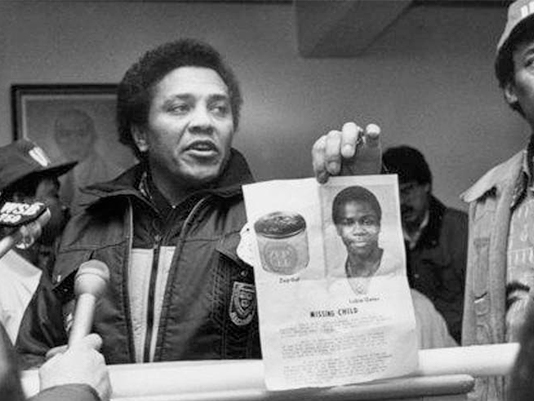
Atlanta’s search for a serial killer becomes more and more convoluted.
Episode 3
Atlanta Monster Seized
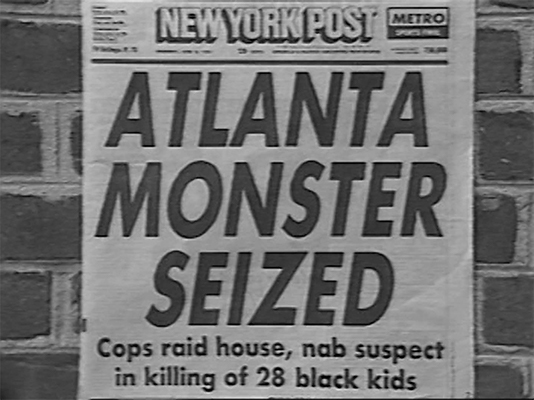
Atlanta asks, who is Wayne Williams?
Episode 4
Gemini
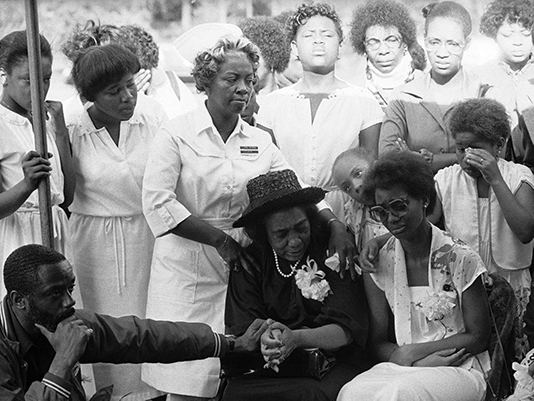
Wayne Williams through the eyes of those seemingly closest to him…

